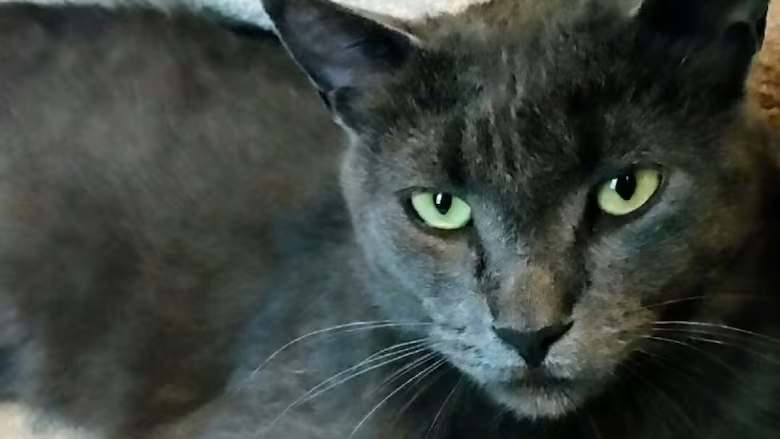Lucky Loki: Missing Manitoba cat comes back three years after disappearing
Headingley family thrilled to reunite with long-lost furry friend

Three years after going missing, a fugitive feline has been reunited with its family in Headingley, Man.
The grey house cat named Loki was known for escaping the house and staying out at night. When the cat fled and failed to return home one morning in August 2016 — and in the days that followed — the family formed a search party.
About 34 months later, Lainee van Hoof said her family of five received an unexpected phone call from the Winnipeg Humane Society with some surprising news: their furry friend had been found.
"My kids all believe in miracles now," van Hoof said. "We'll probably never give up hope again on anything."
The missing cat was brought in to the shelter as a stray from Rosser, Man., a town about 14 kilometres north of the family's home. Loki returned from his journey with some battle scars, van Hoof said, including an injured paw, missing and broken teeth, and other bumps and scars.
Van Hoof said her children were most excited to reunite with their cuddly buddy. They are all perplexed about how the young, domesticated cat could survive the long, harsh winters and fend for himself in the wild for so long.
When he finally got home, the first thing Loki did when he came out of the transport kennel was roll over for a belly rub, "just like he used to do," van Hoof said.

The animal shelter indicated Loki's ear tattoo is what led them to identify the lost cat and reconnect him with his family.
Lenore Hume, spokesperson for the city's humane society, said the return rate for lost cats is no higher than 20 per cent.
Although statistics are not recorded in a way that shows the timelines in which animals are reunited, Hume said there are some exceptional cases.
In the early 2000s, a lost cat was returned to its family 15 years after going missing. Recently, another family was reunited with their pet five years after the last time they saw it.
Despite best efforts, cats are going to get out, Hume said.
"The best thing we can do is ensure proper identification is in place."
Hume suggested animals get an ear tattoo, a microchip, and be licensed through the city to ensure up-to-date information is on file. For example, an animal recovered with a collar and tag containing the licensed information requires a simple call to 311.
"It's rare, but it's not super rare when people are taking these precautions," Hume said about the chances of long lost pets returning home.